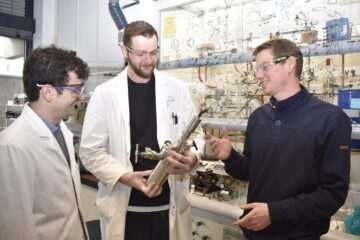Ban on sweets in school helps to combat childhood obesity

The control group of schools that had not introduced specific rules for sweets and food/drink saw an increase in the relative number of overweight or fat children of 3 per cent. The results of this project, called STOPP (Stockholm Obesity Prevention Project), are to be presented today at an international scientific congress on obesity in Budapest.
“Our results show that programmes to reduce the increasing rate of obesity can be carried out within the schools’ existing budgets,” says Professor Claude Marcus, leader of the research project. “We also interpret the results to mean that clear regulations in schools can help parents to set standards for their children and improve dietary habits at home.”
The number of overweight and fat children has increased in Sweden and globally over the past few years. Scientists estimate that between 15 and 20 per cent of Swedish children are overweight. Between 3 and 6 per cent suffer from obesity.
The present study included 6 to 10-year olds at 10 schools with recreation centres in the Greater Stockholm region. The schools were selected to give an even distribution of household income, immigrant background and pupil numbers. Half of the schools ran a healthy diet programme, and removed all buns, sweetened drinks and sweets from their premises and those of the recreation centres. The children were also given the option to choose lower fat and more fibre-rich lunches.
The result was that the rate of overweight dropped from 22 to 16 per cent in the schools which had opted for the better diets, and increased from 18 to 21 per cent in the control schools. The figures are statistically reliable.
STOPP was financed by the Stockholm County Council with contributions from the Swedish Research Council and the Masonic Home for Children in Stockholm.
Study:
Stockholm Obesity Prevention Project
Research team: Claude Marcus, Anja Nordenfelt, Marie Karpmyr, Ulrika Kennegård, Gisela Nyberg, Gunilla Maria Olsson and Jan Kowalski, The Department of Clinical Sciences, Intervention and Technology, Paediatric Unit, Karolinska Institutet, Huddinge.
The study is presented at the 15th European Obesity Congress 2007 in Budapest, Monday 23 April 2007.
Media Contact
All latest news from the category: Health and Medicine
This subject area encompasses research and studies in the field of human medicine.
Among the wide-ranging list of topics covered here are anesthesiology, anatomy, surgery, human genetics, hygiene and environmental medicine, internal medicine, neurology, pharmacology, physiology, urology and dental medicine.
Newest articles

Lower dose of mpox vaccine is safe
… and generates six-week antibody response equivalent to standard regimen. Study highlights need for defined markers of mpox immunity to inform public health use. A dose-sparing intradermal mpox vaccination regimen…

Efficient, sustainable and cost-effective hybrid energy storage system for modern power grids
EU project HyFlow: Over three years of research, the consortium of the EU project HyFlow has successfully developed a highly efficient, sustainable, and cost-effective hybrid energy storage system (HESS) that…

Safer alternative for an explosive reaction
The chemical industry has been using a reaction with explosive chemicals for over 100 years – now Mülheim scientists have discovered a safer alternative. The Ritter Group of the Max…





















